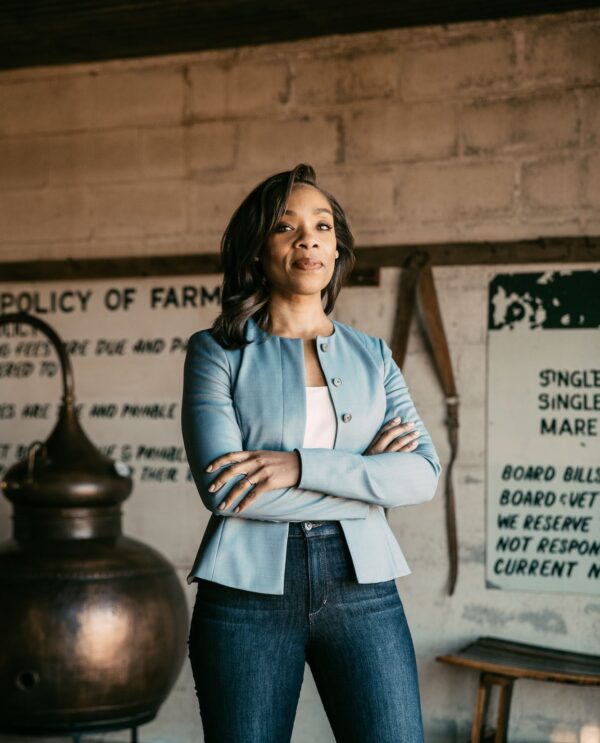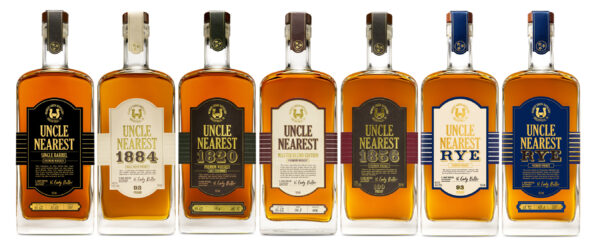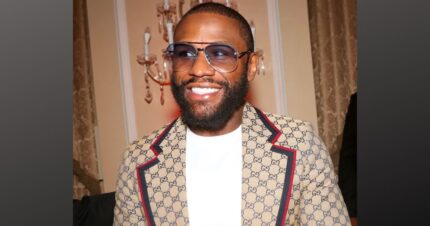The founders of the Uncle Nearest Premium Whiskey company, Fawn and Keith Weaver, have set up a scholarship specifically to support educational goals for the descendants of America’s first Black distiller, Nathan “Nearest” Green. It was Green who taught Jack Daniel (of Jack Daniel’s whiskey fame) the process.

In addition to the scholarship, the wife and husband team has created a program to help other people of color to achieve their entrepreneurial goals, a leadership acceleration, and a business incubation program.
Since its launch in 2017, Uncle Nearest Premium Whiskey has sold nearly 1.5 million bottles of Tennessee whiskey bearing Green’s nickname, according to the Tennessean. The brand is available in more than 21,000 bars, restaurants, and stores in all 50 states and 12 countries.
Fawn Weaver, CEO of Grant Sidney Inc. and Uncle Nearest Premium Whiskey, worked for years to bring the story of Nathan “Nearest” Green, a formerly enslaved African-American, from the whispers of a legend to a prominent personality in this nation’s history.
Fawn Weaver has verified Green as the first African-American distiller on record in the U.S., the first master distiller for Jack Daniel Distillery, and the wealthiest African-American in Lynchburg, Tennessee, Entrepreneur reported. And despite the long-held and much-reported belief, Green was never Jack Daniel’s slave, Weaver said.
There was another story that Daniel was taught distilling from a preacher, grocer and distiller named Dan Call. But on the 150th anniversary of Jack Daniel’s in 2016, and the distillery, revealed that Daniel didn’t learn distilling from Call, but from Green — one of Call’s slaves.
Despite Green acquiring so much wealth in the early 20th century, it did not translate or trickle down generationally. Many factors played a part, none of which Green could have prevented himself.
In 1909, the state of Tennessee enacted a partial prohibition of the sale of liquor within four miles of a school, and a second prohibited the manufacture of intoxicating beverages, records show. On January 13, 1919, the 18th Amendment that prohibited the sale and distribution of alcohol took effect, and Prohibition remained the law of the land until that amendment was repealed with the ratification of the 21 Amendment on Dec. 5, 1933.
As a result, almost two full generations of Greens would be detached from the wealth their ancestor acquired from the legacy of whiskey-making taught to his sons, Lewis, Eli, and George, and grandsons Charlie and Otto, who all worked with Daniel in the early days as distillers.
The Weavers have endeavored to help his descendants access wealth on their own by establishing the Nearest Green Foundation and the Nearest Green Legacy Scholarship, which is designed to cover the college tuition for Green’s direct descendants.
“I didn’t care where they went to college, how expensive it was,” Weaver says. “All they had to do was get in, and they immediately got a scholarship, and the only thing they had to do to maintain that scholarship was get a B average. Every semester, we put a new round of Green’s descendants through college.”
The Weavers are also extending the scholarship to those who want to go to graduate school, saying, “I’d love to see as many get Ph.D.s as possible and we’ll continue paying for it all the way through.”
Support from the Weavers is not limited to Green’s offspring.
The Uncle Nearest brand has been extraordinarily successful since its debut in the market. In 2019 and 2020, it was the most awarded American whiskey and the three ultra-premium whiskies under its umbrella have won more than 150 awards and accolades worldwide. But that success has not come without bumps.

In an effort to help other Black-founded businesses get over some of those sure-to-come hurdles, Weaver has started the Black Business Booster program.
Weaver explained, “I wanted to make sure that Uncle Nearest wasn’t the only one, and that I didn’t get to the end of this journey in 40 more years, and then write a book that’s no longer really relevant.”
This program, in addition to the Nearest and Jack Initiative, has a mission to diversify the American whiskey industry, in terms of getting into the business as an owner and going up the ranks as executives in the space. These skills in industry entrepreneurship and executive leadership are found in Nearest Green School of Distilling, Leadership Acceleration Program, and Business Incubation Program.
Weaver launched the family scholarship and fund, the diversity initiatives, and the leadership training, she doesn’t believe she is through. She created the $50 million Uncle Nearest Venture Fund to invest in BIPOC and women-founded brands.
Already, since announcing it during the 100th anniversary of the Tulsa Race Massacre, the fund has invested $2 million in Jack From Brooklyn’s sorel liqueur; $2 million in Ian Burrell’s Equiano Rum Company, and $5 million in Hella Cocktail Co, a mixology company.
“We wanted to make sure that as we were coming up, as we were making money, we were taking that money and recycling it back into the opportunities of others to become the next Uncle Nearest,” the businesswoman stated.
Five years into this journey, Weaver is still working to preserve the Nearest legacy. Not just through the whiskey, but also through initiatives to celebrate the next generation.




